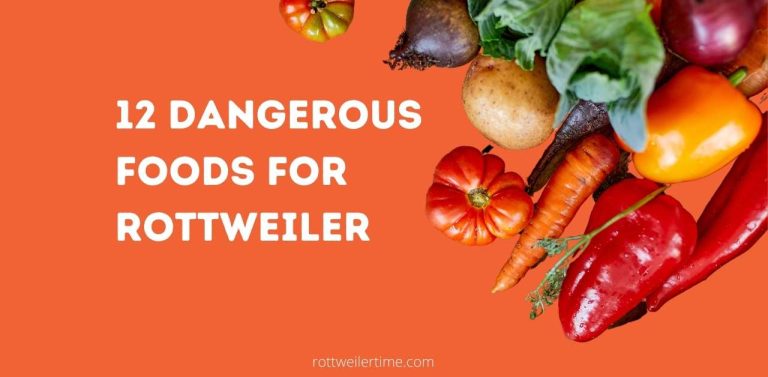When you first get your Rottweiler, you might think it’s okay to feed them any type of food they like, but that’s not true.
Rottweilers are prone to several common health problems, so they need proper nutrition to keep their bodies working well and prevent these issues from getting worse.
Here are 10 dangerous foods your Rottweiler should never eat – plus alternatives that are better for their bodies and overall health.
Contents
1 – Onions
Known to be toxic to dogs, onions contain a compound called n-propyl disulfide that interferes with red blood cells’ ability to carry oxygen throughout your dog’s body.
The symptoms of onion poisoning can vary from vomiting and diarrhea to damage to your dog’s red blood cells and central nervous system.
Onions are one of several vegetables, fruits, spices, and plants you should never give your pet; if ingested in large enough quantities they could cause permanent damage or even death.
Signs of an onion toxicosis include lack of appetite (although some dogs may still eat onions), vomiting, diarrhea, and in some cases abdominal pain and lethargy.
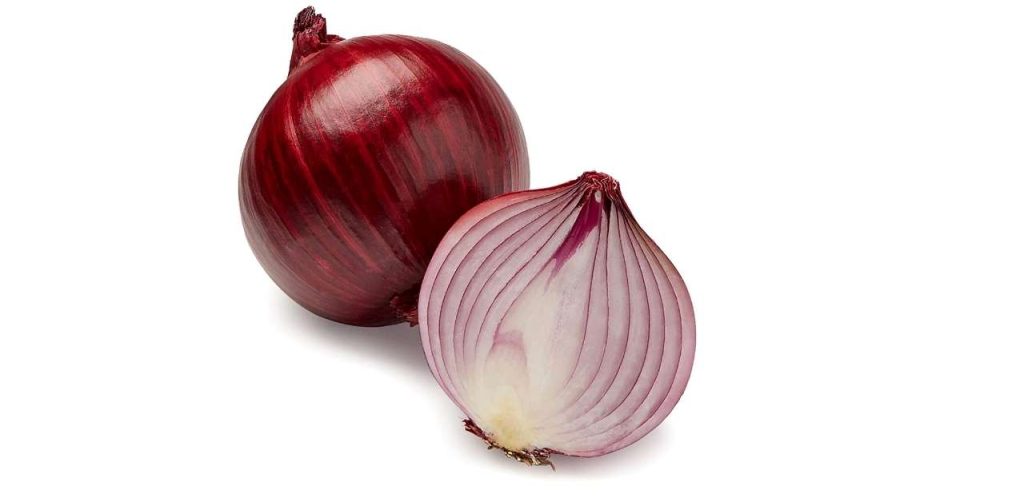
You might be interested in this: Common Mistakes People Make About Rottweiler Diet
2 – Garlic
The active ingredient in garlic is called allicin. Although it is harmless to humans, in pets it can cause burning and irritation of their stomach lining.
Also, if consumed in large amounts, garlic can upset your pet’s blood cell count, making him more prone to bruising and bleeding. Some dogs are also allergic to garlic and can experience hives or other symptoms upon consumption.
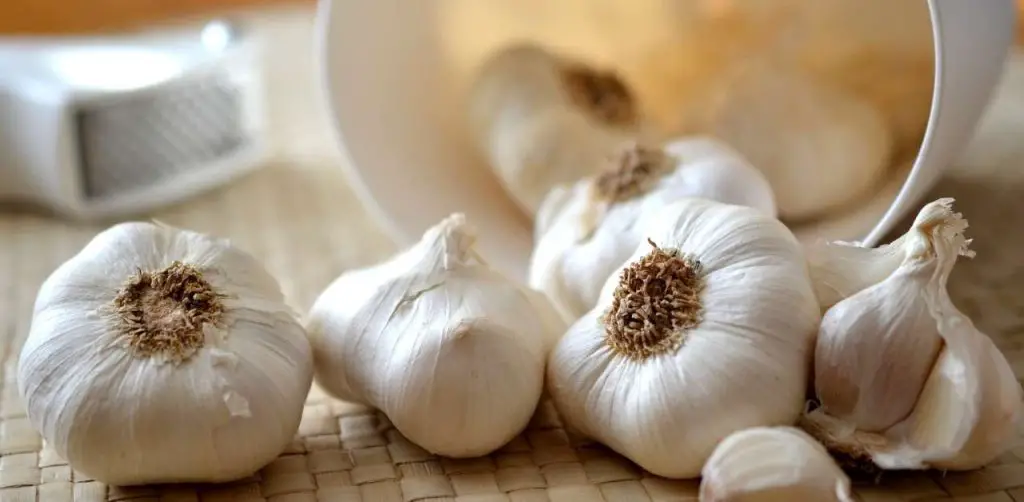
3 – Grapes & Raisins
Grapes and raisins can cause kidney failure in dogs. Eating grapes or raisins is dangerous for any dog, but it’s especially risky for senior or immune-compromised pets.
It may be tempting to share a serving of your healthy fruit salad with your four-legged family member, but these tasty treats can cause irreversible damage to a dog’s kidneys.
Dogs are not able to metabolize fructose from grapes and raisins properly – sugar that makes up about 90 percent of grape skins and 50 percent of grape seeds – which causes an accumulation of toxins in their bodies that can lead to acute renal (kidney) failure within two days.
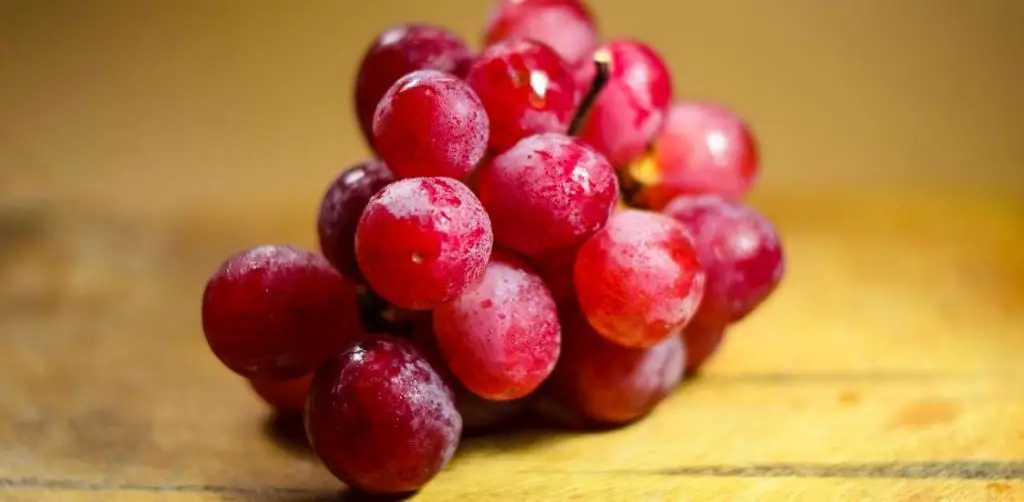
Read Also: 7 Diets for Rottweilers: Which One is Best?
4 – Chocolate
No, it’s not just for humans! It’s true that chocolate is poisonous to dogs and other animals and can be fatal. For example, dogs are generally attracted to dark chocolate because of its similarity to black licorice – something they enjoy but should never eat.
Chocolate contains a chemical called methylxanthine, which causes vomiting and diarrhea if consumed in large quantities by pets.
The effects of chocolate poisoning are worse in smaller dogs and can lead to seizures, heart attack or respiratory failure. If you suspect your dog has eaten some chocolate – no matter how much – call your vet immediately for advice on what treatment may be necessary.
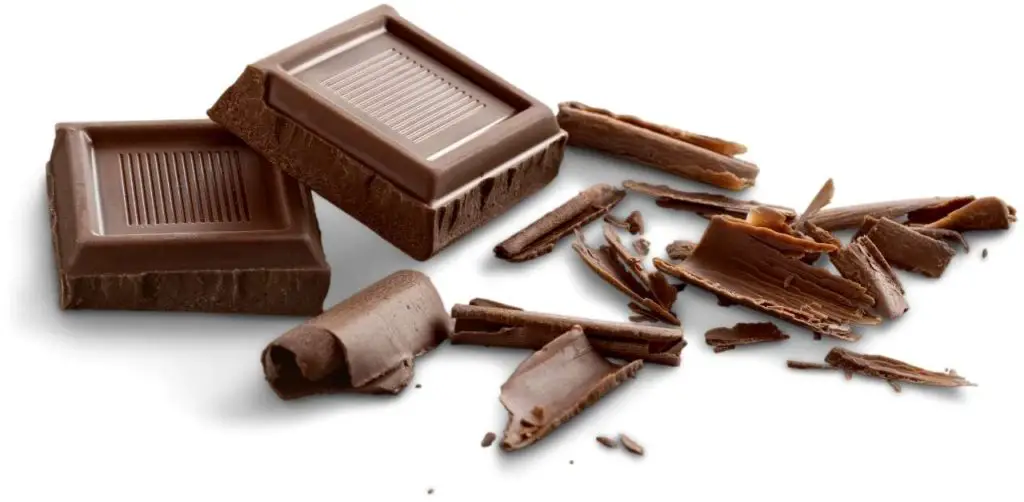
5 – Fatty Meats
The fat in fatty meats can clog your rottweiler’s arteries, potentially leading to cardiovascular disease. If you can’t help but give your dog a few bites of a cheeseburger, at least make sure it’s lean ground beef and not something like salami or bologna.
Another tip: Take any skin off before giving it to your dog. Fatty skin-on chicken (or turkey) isn’t as dangerous as when you deep fry it, but it could be enough to cause problems with fat absorption in rottweilers.
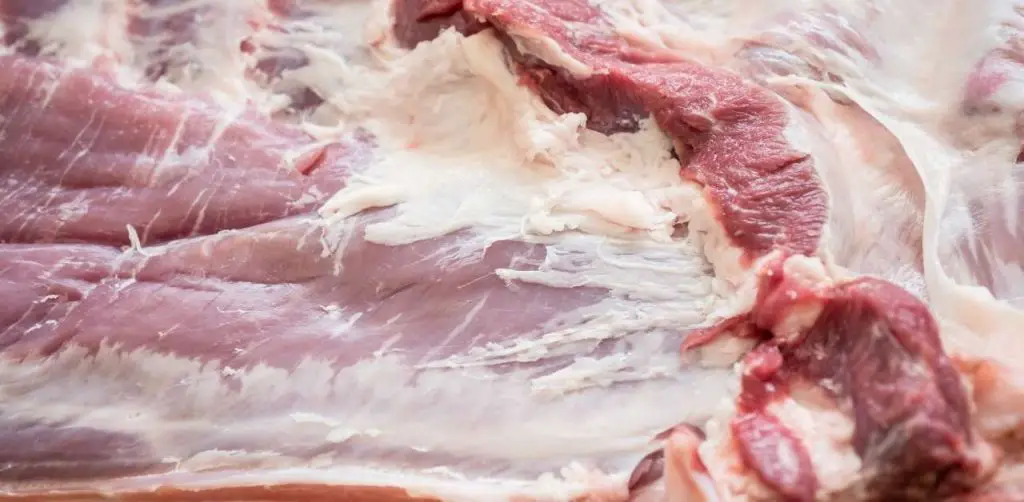
Check out this guide: How Often Should Rottweiler Puppies Eat | The Brief Guide
6 – Caffeine & Soda
Caffeine is a stimulant that can lead to increased heart rate, increased blood pressure, and nervousness. Soda has lots of sugar – one soda can have as much as 35 grams of sugar. With all that added sugar, there’s no way your dog will still be hungry for his regular meal!
Both caffeine and sugar are toxic for dogs and should never be given to them under any circumstances. The potential consequences are severe: liver failure, seizures, and death! For example, just half a cup of cola contains about 2 tablespoons of caffeine.
Ingesting too much caffeine, in general, can also cause stomach upset in your dog. Check with your vet before giving him or her anything with caffeine in it; even some supplements contain it!
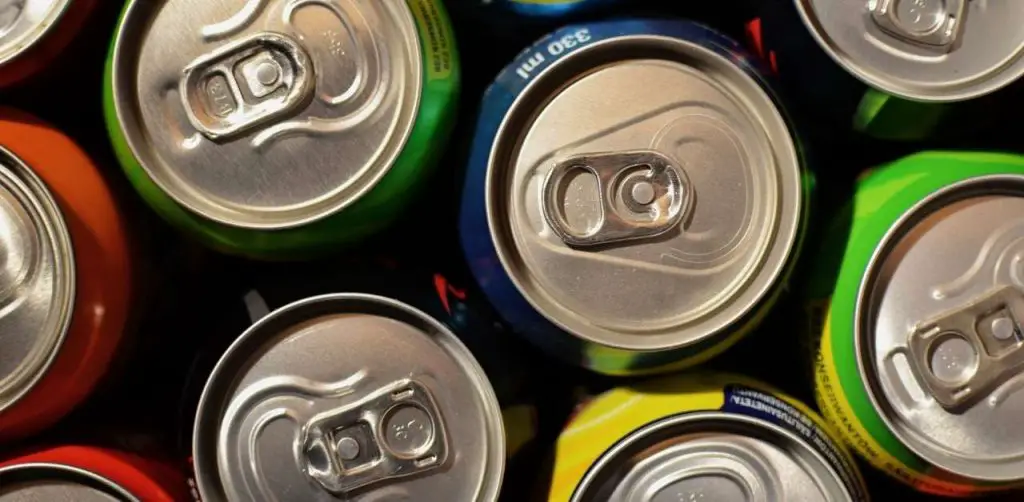
7 – Alcohol
Alcohol is a definite no-no when it comes to dogs. Alcohol not only affects your pet’s central nervous system but it also dehydrates them, leaving them susceptible to heatstroke, especially in very hot weather.
It can be quite fatal for dogs and although some may be able to handle small amounts of alcohol with little issue, it’s just not worth taking a chance.
If you suspect your dog has had even a tiny bit of alcohol (and in their world tiny does mean drop), take them to an emergency vet immediately – most likely they’ll need IV fluids or medications and will likely have bloodwork run as well.
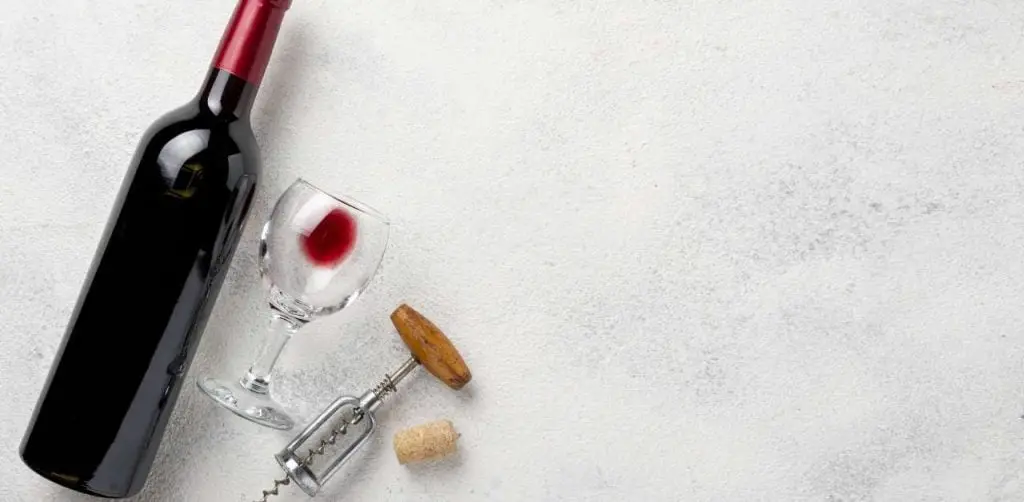
8 – Dairy Products
Cow’s milk is designed to digest fast in cows, so when it breaks down in dogs’ stomachs, they can be susceptible to bloating and diarrhea.
Since you have a lot of human food that could potentially make your dog sick on hand, dairy products are a big concern. Just like other foods that are outside of their diet plan, too much dairy is a recipe for disaster.
If you must offer them cheese or ice cream every now and then, keep portions small and watch for any gastrointestinal issues afterward.
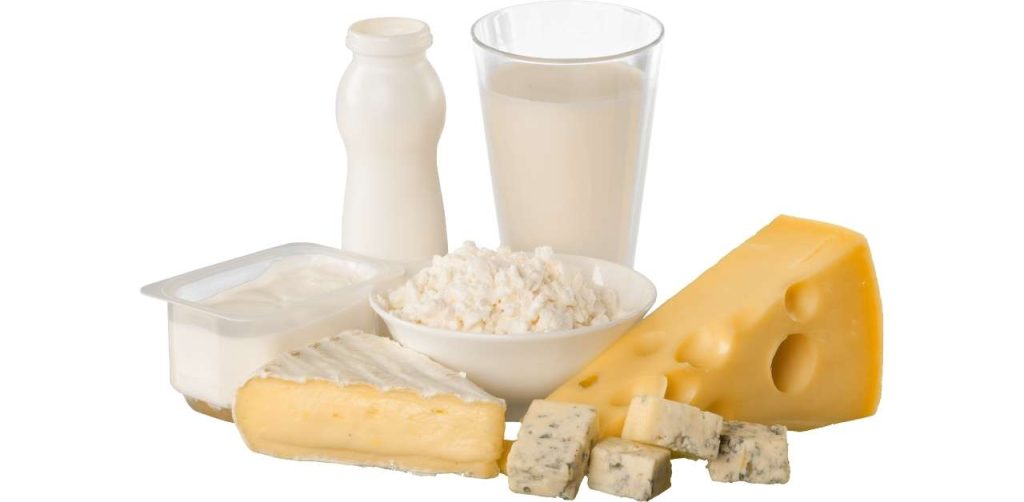
9 – Citrus Fruits
In addition to being irritating, citrus fruits like lemons and oranges are highly acidic. This can damage your dog’s stomach and lead to long-term health problems.
If you want to treat your dog to a refreshing snack, avoid lemonade, oranges, grapefruits, and other citrus fruits. Stick with plain water instead – of a non-citrus flavored drink like Pedialyte.
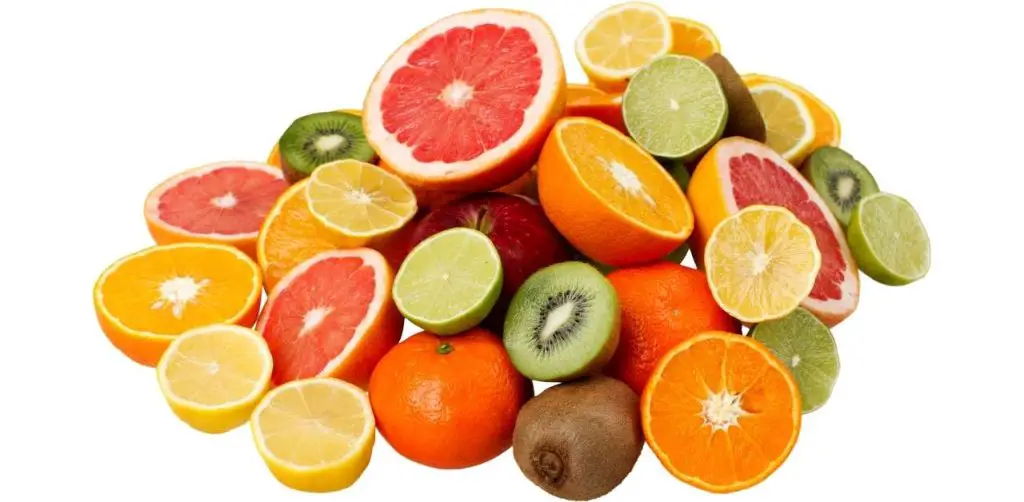
10 – Xylitol and Other Sweeteners
If you have a Rottie, chances are good that you’ve been warned about giving him or her xylitol, a sugar substitute found in some chewing gums.
While dogs can eat xylitol safely—it provides some dental benefits for them—other sweeteners like sorbitol and maltitol can be deadly.
These are often used in diet candies, which can be toxic to pets if consumed even in small amounts. The results of eating these types of products range from vomiting to liver failure and even death in particularly severe cases.
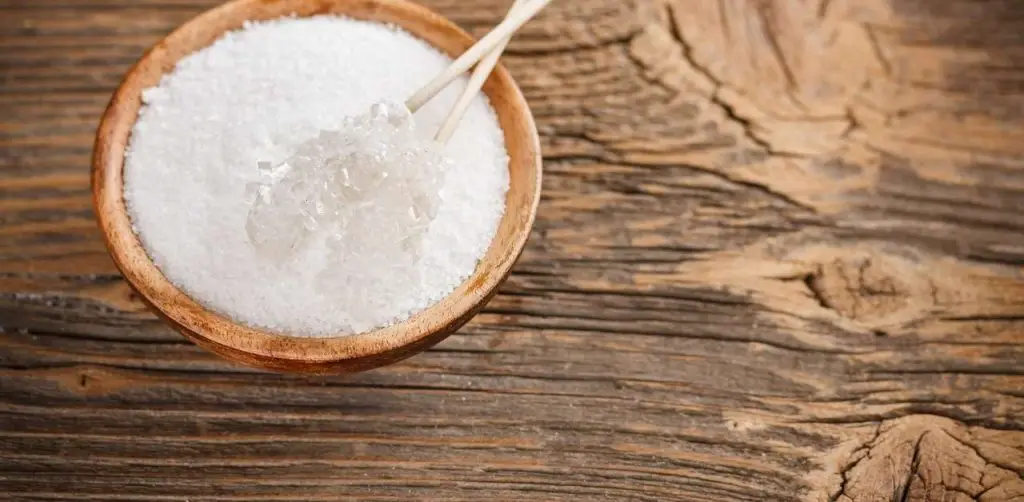
11 – Celery & Spinach
Both of these vegetables contain oxalates. These aren’t poisonous in normal amounts, but if your dog consumes large quantities of them (which can happen when eating raw celery or spinach), it can lead to problems.
If too much calcium binds with oxalates, that can lead to bladder stones and eventually kidney damage. The key is avoiding foods that are high in both calcium and oxalates.
Do a little research to be sure you know which foods are best avoided so you don’t have to rush your dog to emergency care later on!
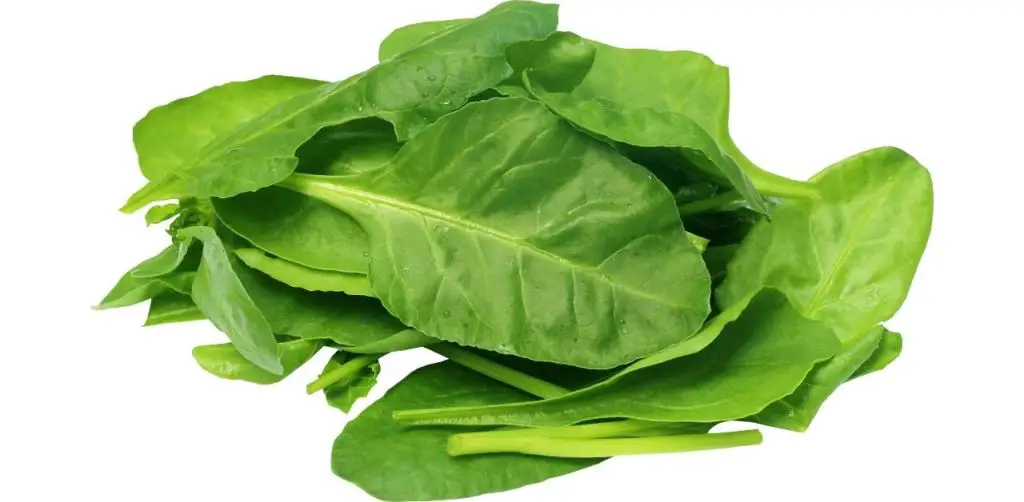
12 – Kale
Be careful of kale—it contains oxalates, which can create kidney stones in dogs. Symptoms may include vomiting, lethargy, and discomfort.
If your dog is having issues, limit their intake of green leafy vegetables to a couple of tablespoons per day to be safe.
Most dogs will love kale once it’s cooked with some olive oil or butter as an added treat. The nutritional benefits far outweigh any potential risks; just be cautious at first so you can gauge your pup’s reaction before giving them unlimited amounts of it!
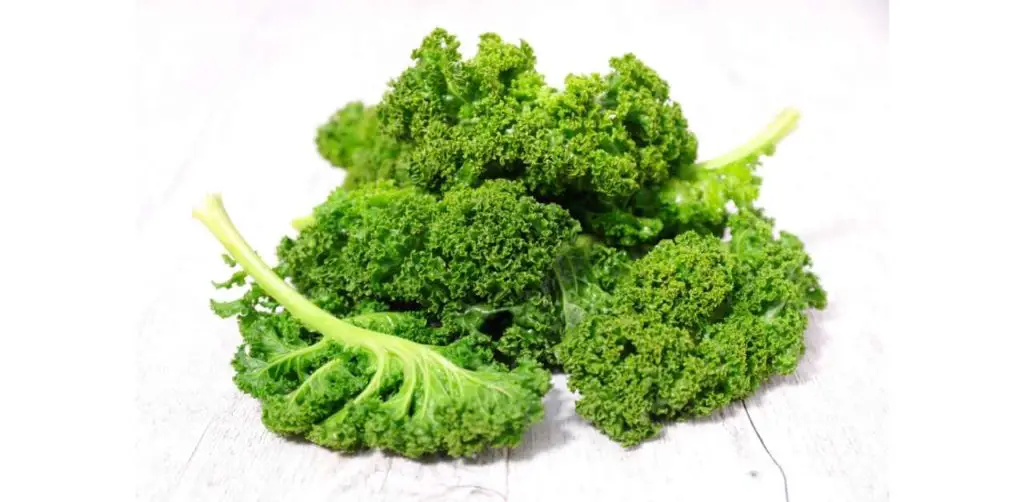
Final Thoughts
In most cases, dog food will contain proper levels of protein, fiber, and calcium. However, some foods can have an adverse effect on your dog’s health. You should also keep in mind that dogs with certain medical conditions should not be given certain treats. If you notice unusual symptoms following your pet consuming a specific treat or food item, consult a veterinarian to learn whether it is safe for your dog to eat that particular item.
Meet the Author Mehmood Shah,
As an owner of Rottweiler for 10 years, I motivate and encourage people about this lovely breed.
We’re dedicated to providing you the detailed researched articles about Rottweiler, with an emphasis on Rottweiler Health, Training, and Exercises.
I started my journey with Rottweiler Time in 2021 and it has come a long way from its beginnings.
Thanks for Your Support.

